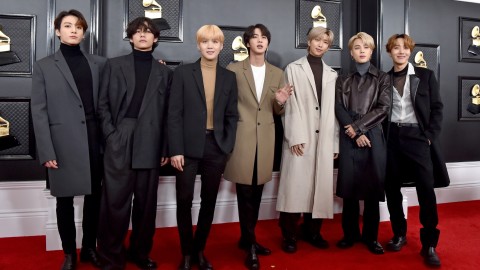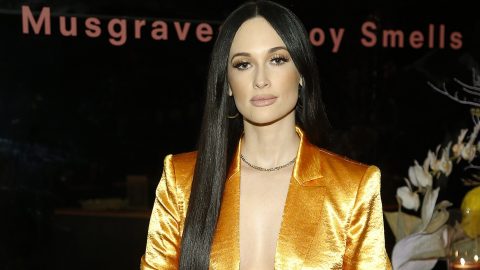
The new documentary Janet Jackson, which premiered in the UK on Sky and NOW earlier this week, works because it captures the essence of a unique and under-appreciated superstar. We like to put our pop icons in boxes – the enigmatic one (Prince), the provocative one (Madonna), the eccentric one (Janet’s brother Michael) – but Jackson doesn’t conform to any type. Throughout the four-part series, she comes across as reticent, reserved and quietly determined, qualities we wouldn’t necessarily expect from a performer who really raised the bar, especially with her precision-tooled dance routines, for at least 15 years from the mid-’80s onwards.
“This is my story, told by me. Not through someone else’s eyes,” Jackson said when the series was announced last year. “This is the truth. Take it or leave it. Love it or hate it. This is me.” That’s not an oversell, exactly, but the truth it presents is as careful and measured as the singer herself. Jackson and brother Randy (who is also her manager) are executive producers on the series, which means British director Benjamin Hirsch gets fabulous access, but also clearly defined boundaries. When Jackson becomes emotional talking about the death of her domineering father, Joe, her barriers come down pretty quickly: “OK, Ben, that’s enough.”

Janet Jackson doesn’t gloss over difficult periods in the singer’s private life. We learn that she felt deeply neglected by her first husband, R&B singer James DeBarge, who was consumed by substance abuse issues when they wed in 1984. Jackson was just 18, and admits she saw marriage to DeBarge as a way of breaking free from her overbearing father. “I remember times when I would find the pills and I would take them and try to flush them down the toilet, and we would be rolling around on the floor fighting for them,” Jackson recalls. “I knew that he needed help. But I wasn’t the help that he needed.”
But neither does it drill down into every rocky patch. The series offers a fascinating insight into Jackson’s symbiotic creative relationship with second husband René Elizondo Jr. – he gets a writing credit on every track from her 1997 masterpiece ‘The Velvet Rope’ – but doesn’t really explain why their nine-year marriage ended in 2000. Some things, perhaps, are simply too painful to go into on camera.
But despite this, Janet Jackson never feels like a flaccid hagiography. Hirsch has bagged interviews with A-list Janet fans – Mariah Carey, Whoopi Goldberg, Samuel L. Jackson – but uses them sparingly. We hear far more from her older sister Rebbie, a warm and thoughtful presence, and creative collaborators including Paula Abdul, Jackson’s choreographer during the campaign for her 1986 breakthrough album ‘Control’. Debbie Allen, Jackson’s co-star on ’80s TV show Fame, is one of several friends who dismiss an outlandish tabloid rumour that she and DeBarge had managed to have a “secret baby”.
Instead, Hirsch focuses on tracing Jackson’s remarkable career arc from a reluctant child star who had no choice but to join the family business to a socially conscious pop-R&B powerhouse. We hear about era-defining hits like ‘What Have You Done for Me Lately?’, ‘Rhythm Nation’ and ‘Escapade’, bangers that Jackson made after forming an iconic songwriting partnership with Minneapolis-based producers Jimmy Jam and Terry Lewis. By 1995, she was such a huge superstar that recording ‘Scream’ with brother Michael, who was heavily tarnished by allegations of child abuse, feels like a generous gesture on her part.
Inevitably, the final episode explores the fallout from the infamous “wardrobe malfunction” at the 2004 Super Bowl halftime show. A toxic combination of misogyny and racism meant that Jackson bore the brunt for the brief glimpse of her exposed nipple – she was even disinvited from that year’s Grammys – while Justin Timberlake essentially got off scot-free. In a way, this segment of Janet Jackson is most revealing of all. She recalls that she advised Timberlake to stay silent at time, correctly identifying that the media were “aiming this at me”, and explains why she had no interest in rejoining him at the 2018 halftime show.
“Would it be nice to be able to perform? Yes. You know, our family, we love entertaining,” Jackson says. “But on the flip side of it, it’s dredging up the past, reliving something that happened over 10 years ago.” This underlines what the previous three episodes have shown us about Janet Jackson: she’s a master of moving on, rising above, focusing on next phase. You’ll come away with even greater respect for a class act who deserves more – a lot more – than we’ve done for her lately.
The post ‘Janet Jackson’ succeeds by focusing on the music – not the scandal appeared first on NME.






